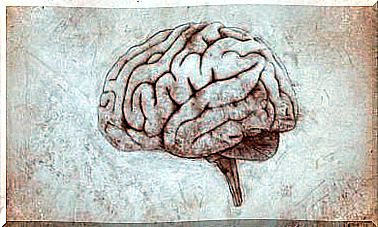Antidepressant Withdrawal Syndrome (SSRI)

Antidepressant withdrawal syndrome is not common. It occurs when you suddenly stop taking medication for anxiety or depression. The body does not have time to adapt to the sharp drop in serotonin in the synaptic space and causes nausea, tremors, headaches, sleep disturbances, etc.
When doctors prescribe antidepressants (SSRIs), they take steps to avoid such phenomena. However, antidepressant withdrawal syndrome can occur not only after abruptly stopping treatment, but also with decreasing doses of medications.
There is one more factor to take into account. When a person experiences this condition, they tend to believe they are having a relapse. For this reason, he often requests the doctor to resume treatment. It is therefore important to know all the effects associated with psychiatric drugs and to understand the importance of expert recommendations and advice.
We see below some other data in this regard.

Antidepressant withdrawal syndrome, what is it?
Before delving into antidepressant withdrawal syndrome, it is important to understand what SSRIs are. This abbreviation refers to selective serotonin reuptake inhibitors, which are nowadays the most common drug to combat anxiety disorders.
They are also frequently administered because they have mild and transient side effects. The adverse symptoms of drugs such as fluvoxamine, fluoxetine, sertraline and paroxetine are very low compared to tricyclic drugs, whose cardiovascular and anticholinergic symptoms are quite serious.
Despite their effectiveness for these clinical conditions, there is one aspect that cannot be overlooked: their mechanism of action will only be effective if taken correctly and only for the prescribed time. The discontinuation of a psychiatric drug must be gradual and never abrupt. Otherwise, antidepressant withdrawal symptoms may occur.
Let’s see what they are.
Why does SSRI withdrawal syndrome appear
Serotonin is a neurotransmitter with multiple functions, which in addition to facilitating communication between nerve cells, affects our well-being, motivation, social behavior, memory, etc. Well, when a person is suffering from depression, their serotonin levels in the synaptic space are particularly low.
as if the brain went into a state of hibernation. The scarce serotonin present is instantly intercepted by postsynaptic neurons. As a study from the National Autonomous University of Mexico (UNAM) and published in the journal Salud mental explains , SSRIs block reuptake and promote the accumulation of serotonin in the synaptic space.
- After several weeks of SSRI treatment, the brain undergoes changes. The serotonin receptors decrease so as to allow the neurotransmitter to stay longer in the body.
- By suddenly stopping taking it, we don’t give the brain time to adapt to the new change.
- Not only will we have fewer serotonin receptors, but serotonin levels will also be optimal, as they are only increased by drugs. We will therefore experience an abrupt relapse and intensification of the symptoms of depression.

Symptoms associated with antidepressant withdrawal syndrome
Symptoms related to antidepressant withdrawal syndrome tend to vary from case to case. It should be noted that the listed effects may occur 1 to 10 days after the SSRI is discontinued.
- Nausea
- Abdominal pain
- Diarrhea
- Difficulty walking
- He retched
- Fatigue
- Irritability
- Headache
- Insomnia
- Muscular pain
- Cold-like symptoms
- Paresthesia (burning and itching sensation all over the skin)
- Visual hallucinations
- Problems with concentration
- Depersonalization
- Negative thoughts
In severe cases, psychotic acts or catatonia may occur (the person stops reacting to the surrounding environment). However, as pointed out at the beginning of the article, these effects are uncommon.

Prevention and treatment
The withdrawal symptoms from antidepressants can be treated recovering the original doses or reducing the intake of drugs adequately for a specified period. However, the doctor will decide on the right action plan.
All this leads us once again to remember the importance of prevention. Although these symptoms do not occur frequently, it is fair to reiterate that arbitrary and individual decisions should never be made about taking or discontinuing medications.
If the SSRI treatment has lasted between 4 and 8 weeks, the ideal is to reduce the doses for a week or two before cutting off the intake altogether. In case the treatment has lasted months, the interruption will be more progressive. Stopping them overnight puts us and our bodies in danger.









